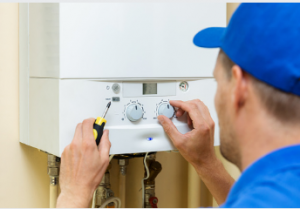Electric hot water systems offer several benefits, but they are also more expensive to install and require more piping. But if you’re looking for the most energy-efficient option, you should go for a three-pipe direct return system. The advantage of this system is that it doesn’t have technical complications and is relatively simple to maintain. Unless you’re handy with plumbing, you can hire professionals to maintain your system. These systems are a good choice for homes that want to reduce their carbon footprint and conserve energy.
 The value of a hot water system lies in its ability to store and release heat slowly. Most Laser Plumbing hot water systems Adelaide has a constant load. Therefore, you should expect only gradual variations throughout the day. However, the temperature outside may significantly impact the system’s load. While the temperature outside may fluctuate, this is unlikely to affect the hot water supply. When shopping for a new one, you should keep the following: Make sure that the brand is worth the money and has a good warranty.
The value of a hot water system lies in its ability to store and release heat slowly. Most Laser Plumbing hot water systems Adelaide has a constant load. Therefore, you should expect only gradual variations throughout the day. However, the temperature outside may significantly impact the system’s load. While the temperature outside may fluctuate, this is unlikely to affect the hot water supply. When shopping for a new one, you should keep the following: Make sure that the brand is worth the money and has a good warranty.
If you don’t have solar access, you should opt for a solar hot water system. While some hot water systems can’t be installed in existing houses, you can convert your current system to more environmentally friendly versions. You can even attach standard electric storage systems to split systems.
When choosing a hot water system, keep in mind the load patterns. Most hot water systems have sporadic and steady loads. The amount of time your hot water will be in use will depend on several factors, including the outside temperature. A continuous flow system is designed to keep a constant supply of heat. A standard-sized system can provide a consistent heat source for a couple of days. If you don’t need hot water in your home, consider a gas-fired system.
Continuous-flow systems deliver water at the right temperature. These systems save energy because they don’t need a storage tank. Instead, they operate on natural gas, LPG, or electricity. They can be installed externally or internally, depending on ventilation. If you don’t have much ventilation in your home, you can install a gas-fired model that runs from a central location. A gas-powered model is better than an electric one if you have limited space.
Continuous flow systems use gas or electricity to heat the water. It means fewer energy costs, but the hot water stays in the tank until needed. This system also allows for continuous use. It is also more efficient than conventional boilers and will give you more hot water. It can be a great option for homes with multiple bathrooms. Just make sure you buy a gas-fired unit if you’re planning on using it for a long time.
A centralized hot water system is an excellent choice for large and small homes. However, a large storage tank will cause unnecessary operating costs, so a smaller system is better. You can also select water-efficient fixtures to reduce the amount of heat loss in storage. If you are not certain about how much hot water you need, consider installing a high-efficiency continuous-flow water heater. That way, you’ll enjoy the benefits of having hot water when you need it.
The main benefit of solar-powered hot water systems is that they produce their heat. You don’t need a large solar panel to make hot water. The sun’s energy will heat the water. You can install solar panels on your roof and store them in your house. Alternatively, you can opt for a traditional electric system. A standard electric storage system can also be added to a split system. You’ll need to plan for the installation of a suitable solar-powered unit.
An electrically heated system will cost less to buy but will cost you more to run. But a continuous flow system will heat the water on demand, not at all. That’s the best option for homes with a limited budget. If you have a small budget, a gas model might be an option. If you’d like a high-quality hot water system, you should also choose a propane tank. If you’re considering a gas unit, you need to ensure that it has a large capacity.